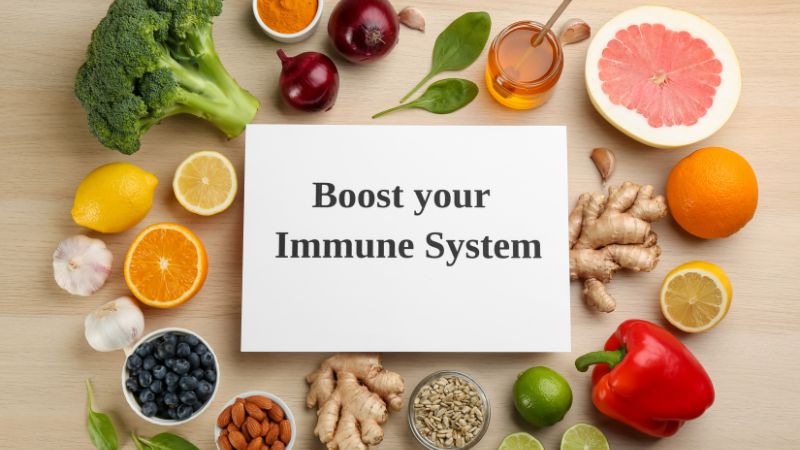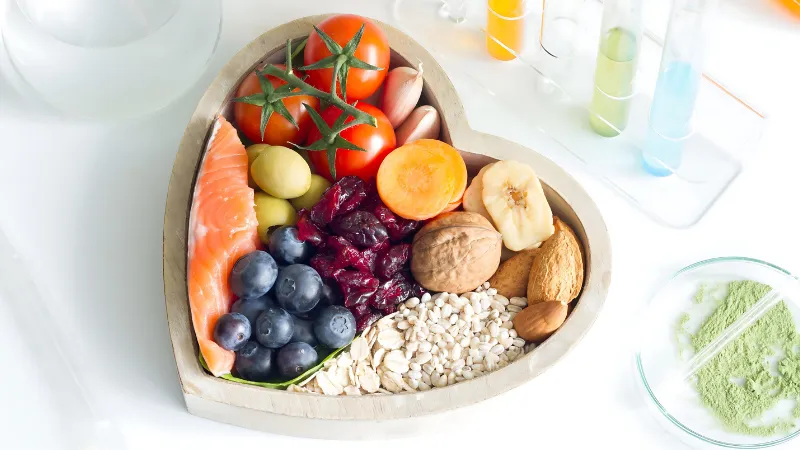15 Things You Should Know About A Healthy Diet
The saying ‘You are what you eat,’ isn’t just a catchy phrase by French author Jean Anthelme Brillat-Savarin. It’s a fundamental truth that emphasizes the significance of the decisions we make regarding our food. The foods and beverages we consume directly impact our physical health, mental well-being, and overall quality of life. In this blog, we will examine the necessity of maintaining a healthy diet.
Investigate how our food-related decisions can serve as natural medicine and share insights into how eating well can help us be healthy. A healthy diet is not just about losing weight but nourishing your body with the right nutrients for a vibrant, energetic life.

- Science Justifiication:
During digestion, the food we eat is broken down into nutrients, which are subsequently absorbed by our systems and utilized for various tasks. There are the following nutrients:
- Macronutrients: The three macronutrients—carbohydrates, proteins, and fats—create energy and support the body’s functioning.
- Micronutrients: Vitamins and minerals are necessary for metabolic processes such as energy production, repairing damaged cells, and the function of the immune system.
- Phytonutrients: The molecules known as phytonutrients, found in foods derived from plants, possess antioxidant capabilities and are beneficial to one’s general health.
Consuming nutrient-dense and whole meals gives our bodies the fundamental components they require to perform at their highest level. Conversely, a diet high in processed foods, sweets, and bad fats can result in inadequacies, inflammation, and chronic diseases.

2. Physical Health:
- Weight Management: A well-balanced diet allows one to maintain a healthy weight by supplying the appropriate nutrients without consuming excessive calories.
- Disease Prevention: Consuming foods that are high in nutrients helps to strengthen the immune system and lowers the risk of developing chronic diseases, including cancer, diabetes, and heart disease.
- Energy levels: Consuming foods abundant in complex carbs, lean proteins, and healthy fats can give sustained energy throughout the day because of their composition.
3. Mental Well-Being:
- Brain Function: Nutrients such as omega-3 fatty acids, B vitamins, and antioxidants support the brain’s cognitive function and mental clarity.
- Mood Regulation: A healthy diet can influence mood regulation, which is important because neurotransmitters are involved in mood and mental wellness. The neurotransmitter serotonin, commonly referred to as the “feel-good” neurotransmitter, is affected by nutrition, for example.

4. Longevity:
- Healthy Aging: Consuming foods high in antioxidants helps prevent damage to cells and slows down the symptoms of aging. Proper eating also prevents age-related disorders.
The idea that diet can be used as a treatment extends back to ancient times. In a famous quote, Hippocrates, considered the father of modern medicine, said, “Let food be thy medicine and medicine be thy food.” One way in which choosing healthy food choices can serve as a form of natural medicine is as follows:
5. Foods That Prevent Inflammation:
- Examples: Foods such as leafy greens, berries, nuts, seeds, and fatty fish are some examples.
- Benefits: Consuming these foods helps reduce inflammation in the body, which is associated with a wide variety of chronic disorders.

6. Foods that are Immune-Boosting:
- Examples: Citrus fruits, garlic, ginger, yogurt, and almonds.
- Benefits: Certain foods, abundant in vitamins and minerals, strengthen the immune system and help the body fight illnesses.

7. Gut Health:
- Examples: The healthy diet foods that have undergone fermentation include yogurt, kefir, sauerkraut, and kimchi, among others.
- Benefits: The probiotics found in these meals are beneficial because they encourage the development of a healthy microbiome in the gut, which is necessary for proper digestion and overall health.

8. healthy diet:
- Examples: The following are some examples: dark chocolate, avocados, olive oil, and whole grains.
- Benefits: These healthy diet meals are beneficial because they include healthy fats and fiber, both beneficial to cardiovascular health and assist in lowering cholesterol levels.
9. Incorporate a Variety of Foods
- It is essential to make it a goal to incorporate a wide variety of fruits, vegetables, whole grains, lean meats, and healthy fats into your diet. This will provide your body with a wide variety of nutrients.

10. Focus on Whole Foods:
- Instead of processed and packaged foods, opt for whole foods that have not been processed. Whole foods are rich in nutrients and do not contain any added sugars or fats that are not good for you.
11. Stay Hydrated:
Throughout the day, make sure to consume a lot of water. Drinking enough water is essential to maintaining proper digestion, energy levels, and general health.

12. Mindful Consumption:
Listen to your body’s signals regarding hunger and fullness. Eating carefully and relishing each bite of food improves digestion and overall enjoyment.

13. Preparing Your Meals:
Organizing and preparing healthy diet meals in advance can help you make better health decisions and ward off the temptation to consume convenient foods.
Final Thoughts On “You Are What You Eat”
It is an important reminder of the impact of our dietary choices on our health and well-being that the phrase “You are what you eat” is used. The natural functioning of our bodies may be supported, diseases can be avoided, and our quality of life can be improved if we make eating a diet that is rich in nutrients and is well-balanced a priority.
Keep in mind that food is more than just fuel. It is a medication that can assist us in leading healthier and more fulfilling lives. Eat a healthy diet to maintain your health, and be grateful for your incredible body because it is the only place you have to live.
To learn more, you can check out our latest blogs on body care.





